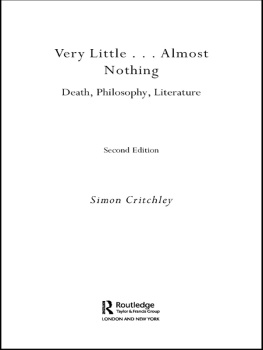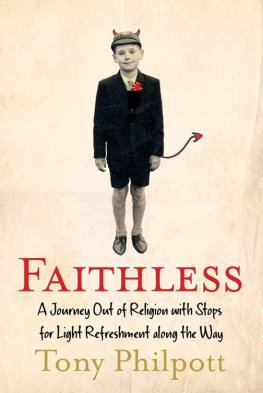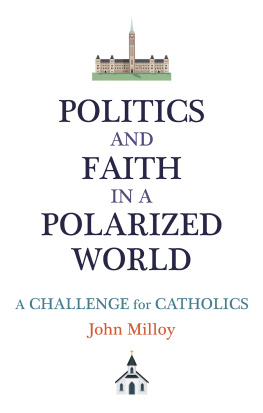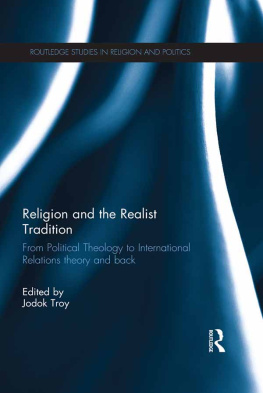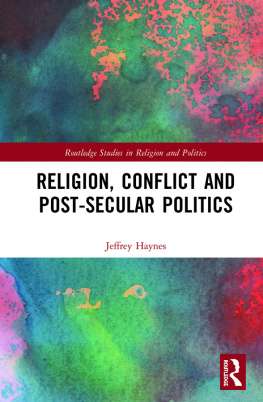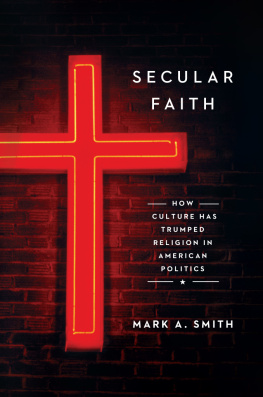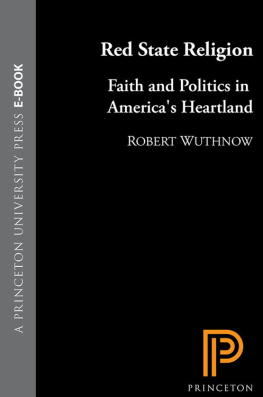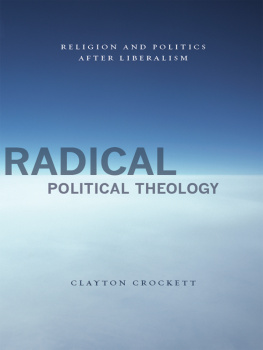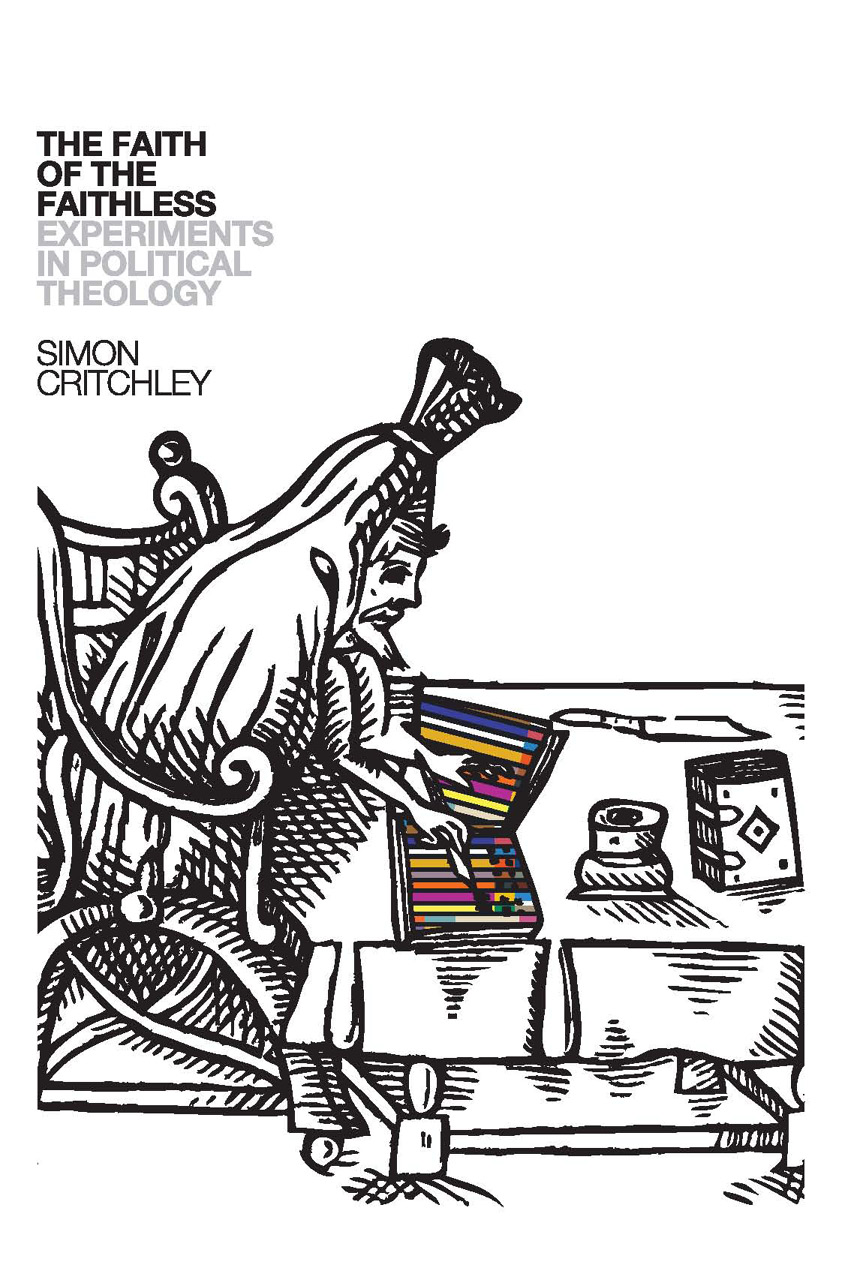
The Faith of the
Faithless

Experiments in Political Theology
SIMON CRITCHLEY

London New York
First published by Verso 2012
Simon Critchley
All rights reserved
The moral rights of the author have been asserted
1 3 5 7 9 10 8 6 4 2
Verso
UK: 6 Meard Street, London W1F 0EG
US: 20 Jay Street, Suite 1010, Brooklyn, NY 11201
www.versobooks.com
Verso is the imprint of New Left Books
eISBN: 978-1-78168-070-4
British Library Cataloguing in Publication Data
A catalogue record for this book is available from the British Library
Library of Congress Cataloging-in-Publication Data
A catalog record for this book is available from the Library of Congress
Typeset in Bembo by MJ Gavan, Cornwall
Printed in the US by Maple Vail
For Jamieson Webster, with love.
Contents
Introduction
WILDE CHRISTIANITY
Id like to begin with a story, a parable of sorts. On May 19, 1897, Oscar Wilde was released from Reading Gaol after two years detention for acts of gross indecency. He left England for the last time on the same day and travelled to Dieppe. On his arrival in France, Wilde was met by Robert Ross, his loyal friend and sometime lover. Ross was handed a manuscript of some 50,000 words on eighty close-written pages. Wilde had apparently written it during the last months of his imprisonment: his gaolers allowed him one sheet of paper at a time and, after it was filled, took the completed sheet and handed him a new one. It was Wildes last prose work before his death in shambolic circumstances in Paris three years later, and the only piece that he wrote in prison.
An expurgated version of Wildes text, a long and at times bitter epistle to his inconstant lover, Lord Alfred Douglas, was published in 1905 with the title, De Profundis , which is the incipit of Psalm 130 in Latin, From the depths I cry to thee, O Lord. It is the religious dimension of this letter that interests me, and in particular Wildes interpretation of the figure of Christ. I think that this text by Wilde illuminates extremely well the shape of the dilemma of politics and belief that will guide the various experiments in this book.
De Profundis is the testimony of someone who knows that he has ruined himself and has squandered the most extraordinary artistic gifts. Yet the text is also is marked by a quiet but steely audacity. Having lost everything (his children, his reputation, his money, his freedom), Wilde does not bow down before the external command of some transcendent deity. On the contrary, he sees his sufferings as the occasion for a fresh mode of self-realization. He adds, That is all I am concerned with. That is, Wildes self-ruination does not lead him to look outside the self for salvation, but more deeply within himself to find some new means of self-formation, of self-artistry. As he endures incarceration, Wilde seems to be more of an individualist than ever. As we will see, matters become more complicated still.
For such an act of self-realization, Wilde insists, neither religion nor morality nor reason can help. This is because each of these faculties requires the invocation of some sort of external agency. Morality , for Wildethe antinomian par excellence is about the sanction of externally imposed law and must therefore be rejected. Reason enables Wilde to see that the laws under which he was convicted and the system that imposed them are wrong and unjust. But, in order grasp the nature of what has befallen him and to transcend it, Wilde cannot view his misfortunes rationally as the external imposition of an injustice. On the contrary, he must internalize the wrongbut this requires an artistic, not a rational process. For Wilde, this means that every aspect of his life in prisonthe plank bed, the loathsome food, the dreadful attire, the silence, the solitude and the shamemust be artistically transformed into what Wilde calls a spiritual experience. The various degradations of Wildes body must become a spiritualizing of the soul, the transfiguration of suffering into beauty, or what psychoanalysts call sublimation: passion transformed.
But it is Wildes views on religion that are so interesting in connection to the themes of politics and belief. Where others might have faith in the unseen and intangible, the great unknown or whatever, Wilde confesses a more aesthetic fidelity to What one can touch and look at. His, then, is a sensuous religion. He goes on to make an extraordinary pronouncement that describes the dilemma I would like to confront in this book:
When I think of religion at all, I feel as if I would like to found an order for those who cannot believe: the Confraternity of the Faithless, one might call it, where on an altar, on which no taper burned, a priest, in whose heart peace had no dwelling, might celebrate with unblessed bread and a chalice empty of wine. Everything to be true must become a religion. And agnosticism should have its ritual no less than faith.
It is the phrase, Everything to be true must become a religion that is most striking. What might true mean? Wilde is clearly not alluding to the logical truth of propositions or the empirical truths of natural science. I think that he is using true in a manner close to its root meaning of being true to, an act of fidelity that is kept alive in the German word treu : loyal or faithful. This is perhaps its meaning in Jesus phrase when he said, I am the way, the truth and the life (John 14:6). Religious truth is like troth , the experience of fidelity where one is affianced and then betrothed. What is true, then, is an experience of faith, and this is as true for agnostics and atheists as it is for theists. Those who cannot believe still require religious truth and a framework of ritual in which they can believe. At the core of Wildes remark is the seemingly contradictory idea of the faith of the faithless and the belief of unbelievers , a faith which does not give up on the idea of truth, but transfigures its meaning.
I think this idea of a faith of the faithless is helpful in addressing the dilemma of politics and belief. On the one hand, unbelievers still seem to require an experience of belief; on the other hand, this cannotfor reasons I will explore belowbe the idea that belief has to be underpinned by a traditional conception of religion defined by an experience or maybe just a postulate of transcendent fullness, namely the God of metaphysics or what Heidegger calls onto-theo-logy. The political questionwhich will be my constant concern in the experiments that followis how such a faith of the faithless might be able to bind together a confraternity, a consorority or, to use Rousseaus key term, an association. If political life is to arrest a slide into demotivated cynicism, then it would seem to require a motivating and authorizing faith which, while not reducible to a specific context, might be capable of forming solidarity in a locality, a site, a regionin Wildes case a prison cell.
This faith of the faithless cannot have for its object anything external to the self or subject, any external, divine command, any transcendent reality. As Wilde says: But whether it be faith or agnosticism, it must be nothing external to me. Its symbols must be of my own creating.
We appear to be facing a paradox. On the one hand, to be true everything must become a religion otherwise belief lacks (literally) credibility or authority. Yet, on the other hand, we are and have to be the authors of that authority. The faith of the faithless must be a work of collective self-creation where I am the smithy of my own soul and where we must all become soul-smiths, as it were.
Next page

